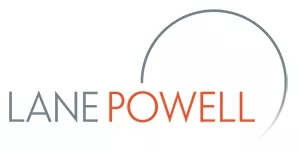On October 21, 2022, the Biden-Harris Administration announced the Centers for Medicare & Medicaid Services (CMS) is revising the Special Focus Facility (SFF) Program to increase "scrutiny and oversight" of "the country's poorest-performing nursing facilities."1
Pursuantto theSocial SecurityAct(Act),2 CMS implementsthe SFFProgram "for enforcement of requirements for skilled nursing facilities that the Secretary has identified as having substantially failed to meet applicable requirements" of the Act. According to CMS' announcement, SFF program revisions are part of "cracking down on enforcement of our nation's poorest-performing nursing homes" to address two concerns that place nursing home residents at risk. The first concern relates to SFFs that fail to promptly demonstrate improvements necessary to "graduate"from the program. The second concern relatesto SFFs that, after graduating from the program, "regress" into a noncompliance.
Whether or not a facility is identified as a potential SFF is based on a score derived from the last three standard health survey cycles and the lastthree years ofsurveys.3 Additionally, SFFProgram revisions will require state survey agencies (SAs) to consider facility staffing levels, among other factors, when deciding which SFF "candidates" are designated as special focus facilities. Accordingly, in a time when staffing shortages are impacting nursing facilities across the nation, those SFF candidates facing the toughest staffing challenges may be more likely to be designated as an SFF.
SFF Program revisions also require that when a facility isselected as an SFF, the SA must provide the facility written notice within five business days, and that notice must include at least the information specified inCMS' model notice letter.4 Along with the notice letter, the SA must also conduct a teleconference with the SFF's "accountable parties" (i.e., the nursing facility's owner, administrator, director of nursing, medical director, other facility leaders) to discuss action the facility must take to graduate from the program and what could cause the facility to be terminated from Medicare and/or Medicaid participation. The revisions also state these teleconferences should cover the seriousness of the facility's SFF status designation; the compliance and significance of facility culture;resources available to the facility to improve quality; and how the lack of a facility demonstrating good faith efforts to improve quality can be a factor in whether CMS decides to exercise its discretionary authority to terminate its participation in the Medicare and/or Medicaid programs.
The SSF Program revisions also provide for progressive enforcement. Specifically, for SFFs, SAs will conduct a standard health survey at least once every six months, and an SFF's continuing failure to meet program requirementswillresultin "progressively stronger enforcement actions"—such as higher civil monetary penalties or denial of payment for new admissions. The revisions also state that an SFF's good faith efforts (or lack thereof) to improve will also factor into progressive enforcement decisions.
The revisions further specify that to graduate from the SFF Program, SFFs must complete two consecutive standard health surveys with 12 or fewer deficiencies cited at scope and severity level (S/S) of "E" or less on each survey. SFFs will not graduate if the following occurs:
- Any standard health survey results in deficiencies cited at an S/S level of "F" or higher, or
- Any life safety survey or emergency preparednesssurvey resultsin deficiencies cited at an S/S level of "G" or higher; and
- 13 or more total deficiencies are cited on any survey (standard health, LSC, EP, or complaint);
- Intervening complaint surveys with 13 or more total deficiencies or any deficiencies cited at an S/S level of "F" or higher.
Facilities also cannot graduate from the SFF program if there are pending complaint surveys triaged at IJ, or Non-IJ High, or until it has returned to substantial compliance. Facilities with deficiencies cited at S/S of IJ on any two surveys (standard health, complaint, LSC, or EP) while in the SFF program will be considered for discretionary termination. Likewise, if a facility has not met the graduation criteria following the third standard health survey, the SA must schedule a conference call with CMS to discuss the situation, and CMS has authority to either use discretionary termination or continue to collaborate with the SA to focus on efforts to improve facility compliance.
Finally, the revisions state that CMS will "closely monitor" facilities that do graduate from the SFF program for three years post-graduation. For SFF program graduates that relapse into poor compliance, CMS may use its authority to impose enhanced enforcement options, which could include discretionary termination from the Medicare and/or Medicaid programs.
Footnotes
1 CMS, Press Release, Biden-Harris Administration Strengthens Oversight of Nations' Poorest-Performing Nursing Homes (Oct. 21, 2022), https://www.cms.gov/newsroom/press-releases/biden-harris-administration-strengthens-oversight-nations-poorest-performing-nursing-homes.
2 Sec. 1819(f)(8) [42 U.S.C. § 1395i–3] and Sec. 1919(f)(10)[42 U.S.C. § 1396r].
3 CMS, Revisions to Special Focus Facility (SFF) Program, Ref: QSO-23-01-NH (Oct. 21, 2022), https://www.cms.gov/files/document/qso-23-01-nh.pdf; Design forCare Compare Nursing Home Five-StarQuality Rating System: Technical Users' Guide (Oct. 2022), https://www.cms.gov/medicare/provider-enrollment-and-certification/certificationandcomplianc/downloads/usersguide.pdf.
4 CMS' model letter is available as Appendix B at https://www.cms.gov/files/document/qso-23-01-nh.pdf
Originally Published by AHLA's Post-Acute and Long Term Services Practice Group.
The content of this article is intended to provide a general guide to the subject matter. Specialist advice should be sought about your specific circumstances.

